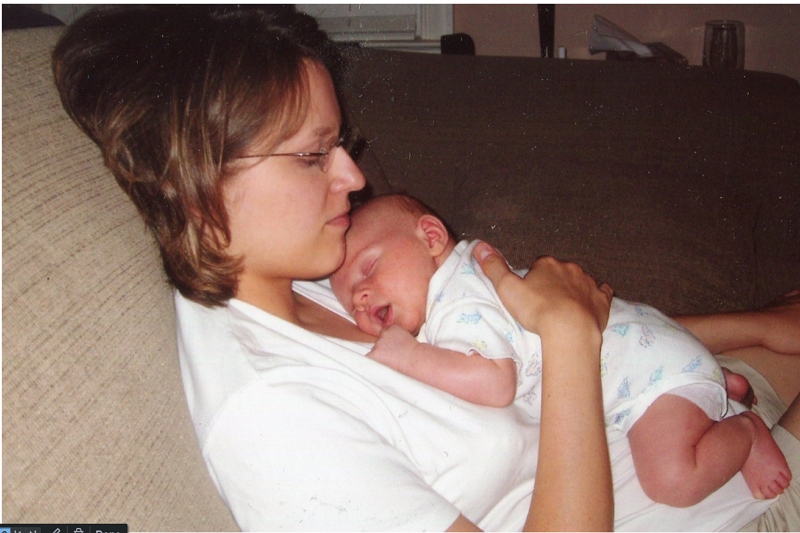In this blog, you will learn more about How Long is Maternity Leave in Germany.
Maternity leave in Germany is an important topic that can be confusing for expats. This article will help you to understand how maternity leave in Germany works, how it compares with other countries and whether or not you need a permit.

The length of time someone is entitled to maternity leave depends on how old they are when the baby arrives. A new mother aged 18-25 years old gets 14 weeks at 100% pay, while a 26-35-year-old receives 16 weeks at 80%. If she has had more than one child before this pregnancy, her entitlement increases by two additional weeks per previous birth.
Maternity Leave in the United States of America
Maternity leave in the United States is a period of paid or unpaid time away from work that pregnant employees can take for the birth and care of their child.
How long is maternity leave in texas
The length of maternity leave in Texas varies by company and the employee’s tenure with that company. In most cases, employees may take up to 12 weeks off for a vaginal delivery or 16 weeks for a cesarean section birth.
can I get paid by my employer while on maternity leave?
In order to receive pay during any portion of your pregnancy-related absence, you must have worked at your job long enough to qualify under federal law for FMLA (Family Medical Leave Act) benefits. If you do not meet this requirement, then only unpaid family medical leave will be available if it is offered by your state or employer as an alternative option.
How do I get paid while on maternity leave in Texas?
If you do not meet the qualification requirements for FMLA, then your state or employer may offer a paid family and medical leave benefits as an alternative option.
Canet paid during maternity leave?
In order to receive pay during any portion of your pregnancy-related absence, you must have worked at your job long enough to qualify under federal law for FMLA (Family Medical Leave Act) benefits. If you do not meet this requirement, then only unpaid family medical leave will be available if it is offered by your state or employer as an alternative option.
Do you have to pay maternity leave back if you quit?
No, you do not have to pay maternity leave back if you quit.
How long should I wear a maternity belt after delivery?
It is recommended that you wear a maternity belt for up to six weeks after delivery, but definitely during any activity where lifting will occur.
What happens if I go into labour before my scheduled cesarean section?
If you go into labour before your scheduled C-section, it would be best advised not to come in until you are at least 36 weeks pregnant.
How long should I wait to have sex after delivery?
You can have sex as soon as you feel up for it, but it’s best advised that you wait until six weeks after birth before having intercourse. If your physician approves, then you could start having sexual relations again four weeks before.
Does FMLA cover work part-time?
FMLA does not require an employer to provide paid medical or family leave benefits in addition to those required by state law. It only requires unpaid family and medical leave for your disability due to pregnancy as long as the employee has worked for a certain amount of time with their current employer under specific conditions.
In this case, your state may provide paid family and medical leave benefits as an alternative option should there be any discrepancies between federal FMLA law and the laws set forth by your states.
Can I be fired while on maternity leave?
No, employers are not allowed to fire you because of your pregnancy. They also cannot make hiring decisions based on pregnancy, including refusing an interview because you are pregnant. Finally, companies cannot retaliate against you for filing a claim involving discrimination related to your pregnancy-related absence from work.
Are people with disabilities protected by the same laws?
Yes! The Americans With Disabilities Act (ADA) prohibits treating employees less favourably due to their disability status. Employers can’t refuse to hire someone who has epilepsy or autism, even if it’s only minor seizures that require no medication and don’t happen at work.
Disabled workers must receive equal pay as nondisabled co-workers doing similar jobs in the company; they have the right to reasonable workplace accommodations, like wheelchair ramps and designated parking spaces; they also can’t be denied promotions or transfers solely because of their disability. Other laws protect people with disabilities in the workplace as well, such as the Fair Labor Standards Act (FLSA).
Are there any exceptions?
Yes! Employees who sign employment contracts often waive these protections if it’s included in the document. The company may agree not to discriminate against you by excluding pregnancy from its anti-discrimination policies. If this is allowed by your contract, then you cannot seek legal action for discrimination related to your absences while pregnant. Other than employee contracts, employers still have a duty under federal law not to against employees filing complaints about discrimination based on pregnancy.
Employers aren’t the only ones who should be concerned about discrimination lawsuits, though. Employees filing discrimination complaints can also sue their managers or coworkers for retaliation if they are terminated due to their complaint of alleged discrimination against an employer.
This is especially important because it will not matter whether or not your termination was related to your pregnancy, but rather that you filed a charge with EEOC and experienced other negative actions by employers after doing so. If this sounds like something that happened to you, then don’t wait! Contact an employment lawyer today! You have up to 180 days from the date of discriminatory act (like unfair treatment) to file a claim with state/federal agencies before time runs out!
